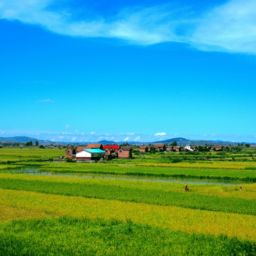The Coup in Niger Republic: Regional Causes and Consequences

Photo: Reuters

Photo: Reuters

As the nation’s biggest banks prepare to report their latest earnings next week, these titans of Wall Street face a conundrum.

Sunday, August 2nd. More than 10,000 protesters invaded the centre of Jerusalem. They participated in the new demonstration against Israeli Prime Minister Benjamin Netanyahu.

Unemployment has long been a pressing issue, and when it comes to the European continent, it particularly affects a significant demographic: young people.

In an ever-changing global landscape, the idea of a joint army within the European Union (EU) has been the subject of considerable debate.

The Republic of Kiribati, or Kiribati for short, is a Pacific Island nation. It has a land area of 811 square kilometres and a maritime exclusive economic zone of 3.5 million square kilometres.

Russian President Vladimir Putin and his Chinese counterpart Xi Jinping continue talks in Moscow on Tuesday

On June 24th, the US Supreme Court overturned the Roe v Wade decision. According to the Guardian, the ruling overturned the right to abortion that women in the United States had enjoyed for nearly 50 years.

After months of high-stakes negotiations, the world awoke today to a new era in global politics. The world’s top ten carbon-emitting nations, led by China, the United States, and India, have announced an unprecedented joint commitment to significantly reduce greenhouse gas emissions by the year 2035.

With the development of environmental science, governments and international organizations are becoming aware of the importance of environmental protection. Environmental protection economics has become an important part of the development of global economic patterns.

Southern states revolt against the Biden administration, and Obama plots to install his incompetent wife in the White House. „Through the ashes of the empire” and „After me, the deluge!”

As the dawn of a new day broke across the serene sultanate of Brunei, the air was filled with a sense of enchantment and regalia.

Myanmar, formerly known as Burma, has been plagued by a protracted and devastating civil war that has given rise to severe humanitarian crises.

In world politics, legitimacy is one of the most crucial tasks of international organisations.

An important decision that changes the map of global geopolitics was taken by Riyadh: Saudi Arabia joins China and Russia in the Shanghai Cooperation Organization.

